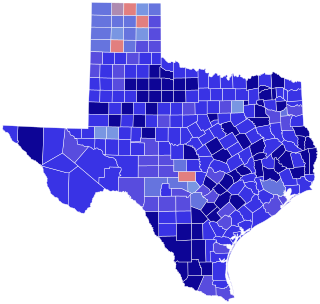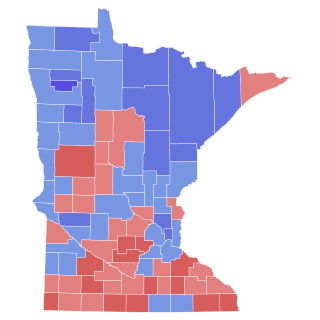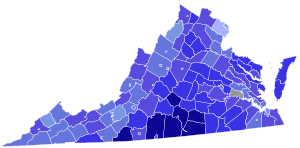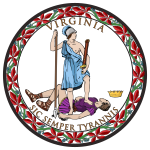
The 1958 United States Senate elections were elections for the United States Senate which occurred in the middle of President Dwight D. Eisenhower's second term. Thirty-two seats of Class 1 were contested in regular elections, the new state of Alaska held its first Senate elections for its Class 2 and 3 seats, and two special elections were held to fill vacancies.

The 1958 United States House of Representatives elections was an election for the United States House of Representatives to elect members to serve in the 86th United States Congress. They were held for the most part on November 4, 1958, in the middle of Dwight Eisenhower's second presidential term, while Maine held theirs on September 8. There were 436 seats during these elections: 435 from the reapportionment in accordance with the 1950 census, and one seat for Alaska, the new state that would officially join the union on January 3, 1959.

The 85th United States Congress was a meeting of the legislative branch of the United States federal government, composed of the United States Senate and the United States House of Representatives. It met in Washington, D.C. from January 3, 1957, to January 3, 1959, during the fifth and sixth years of Dwight Eisenhower's presidency. The apportionment of seats in the House of Representatives was based on the 1950 United States census.

The 1958 United States Senate election in North Dakota took place on November 4, 1958, to elect a member of the United States Senate to represent the State of North Dakota, concurrently with other Class 1 elections to the Senate and various other federal, state, and local elections.

The 1958 United States Senate election in Nevada was held on November 4, 1958. Incumbent Republican U.S. Senator George W. Malone ran for re-election to a third term, but was defeated by Democrat Howard Cannon.

The 1958 United States elections were held on November 4, 1958, and elected members of the 86th United States Congress. The election took place in the middle of Republican President Dwight D. Eisenhower's second term. Eisenhower's party suffered large losses. They lost 48 seats to the Democratic Party in the House of Representatives, and also lost thirteen seats in the U.S. Senate to the Democrats. This marked the first time that the six-year itch phenomenon occurred during a Republican presidency since Ulysses S. Grant's second term in 1874. Alaska and Hawaii were admitted as states during the 86th Congress.

The 1958 United States Senate election in Pennsylvania was held on November 4, 1958. Incumbent Republican U.S. Senator Edward Martin did not seek re-election. The Republican nominee, Hugh Scott, defeated Democratic nominee George M. Leader for the vacant seat.

The 1958 United States Senate election in Montana took place on November 4, 1958. Incumbent United States Senator Mike Mansfield, who was first elected to the Senate in 1952, ran for re-election. Mansfield won the Democratic primary comfortably, and moved on to the general election, where he was opposed by Lou W. Welch, a millworker and the Republican nominee. In contrast to the close campaign in 1952, Mansfield defeated Welch in a landslide and won his second term in the Senate easily.

The 1958 United States Senate election in Vermont took place on November 4, 1958. Incumbent Republican Ralph Flanders did not run for re-election to another term in the United States Senate. Republican candidate Winston L. Prouty defeated Democratic candidate Frederick J. Fayette to succeed him.

The 1958 United States Senate election in Ohio was held on November 4, 1958. Incumbent Senator John W. Bricker was defeated in his bid for a third term by former U.S. Representative Stephen M. Young.

The 1958 United States Senate special election in North Carolina was held on November 4, 1958. Interim Democratic Senator B. Everett Jordan was elected to complete the unexpired term of Senator W. Kerr Scott, who had died in April.

The 1958 United States Senate election in Wisconsin was held on November 4, 1958. Incumbent Democrat William Proxmire, who had won a special election to finish the term of the late Senator Joe McCarthy, was re-elected to a full term in office over Wisconsin Supreme Court Justice Roland J. Steinle, a Republican.

The 1958 United States Senate election in Washington was held on November 4, 1958. Incumbent Democrat Henry M. Jackson won a second term in office over Republican William Bantz.

The 1958 United States Senate election in Texas was held on November 4, 1958. Incumbent Democratic U.S. Senator Ralph Yarborough won a competitive primary against former Senator William Blakley and handily defeated newspaper publisher Roy Whittenburg in the general election.

The 1958 United States Senate election in Rhode Island took place on November 4, 1958. Incumbent Democratic U.S. Senator John Pastore successfully sought re-election, defeating Republican Bayard Ewing in a repeat of their 1952 race.

The 1958 United States Senate election in New Mexico took place on November 4, 1958. Incumbent Democratic Senator Dennis Chávez won re-election to a fifth term.

The 1958 United States Senate election in Minnesota took place on November 4, 1958. Democratic U.S. Representative Eugene McCarthy defeated incumbent Republican U.S. Senator Edward John Thye, who sought a third term. With his victory, McCarthy became the first Democrat ever to be popularly elected to Minnesota's Class 1 Senate seat, and marked the first time since 1859 that Democrats held both Senate seats in the state.

The 1958 United States Senate election in Delaware took place on November 4, 1958. Incumbent Republican U.S. Senator John J. Williams was re-elected to a third term in office over Democratic former Governor Elbert Carvel.

The 1958 United States Senate election in Maryland was held on November 4, 1958.

The 1958 Iowa State Senate elections took place as part of the biennial 1958 United States elections. Iowa voters elected state senators in 22 of the state senate's 50 districts. State senators serve four-year terms in the Iowa State Senate.





















